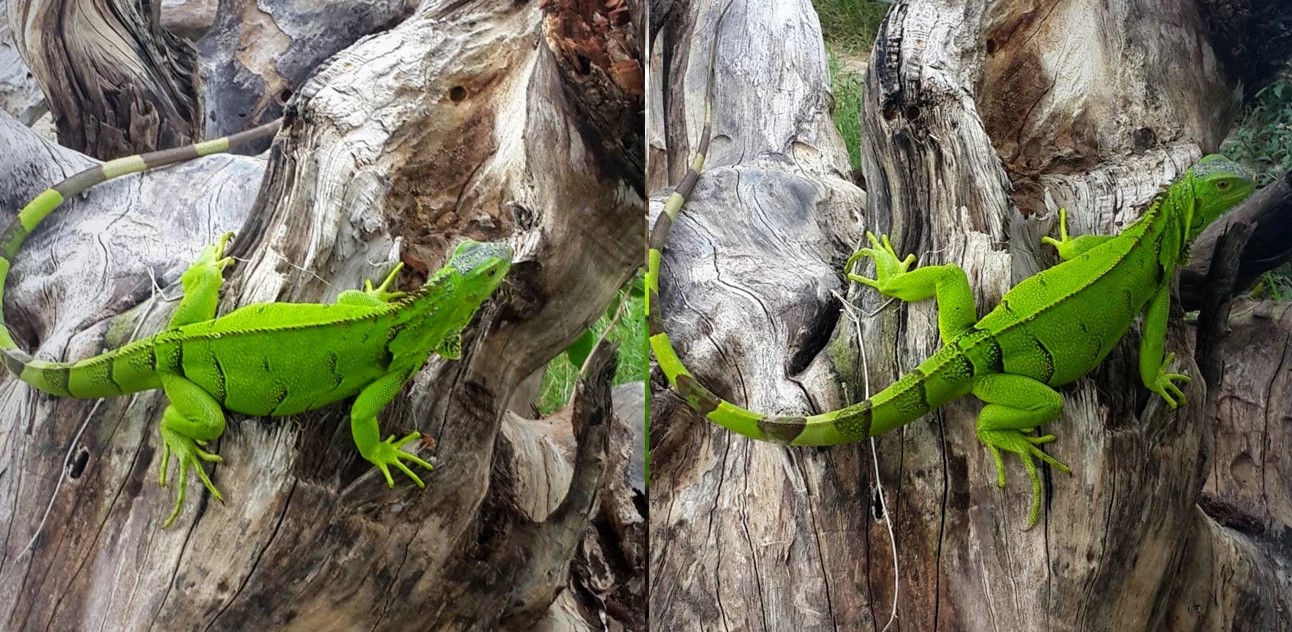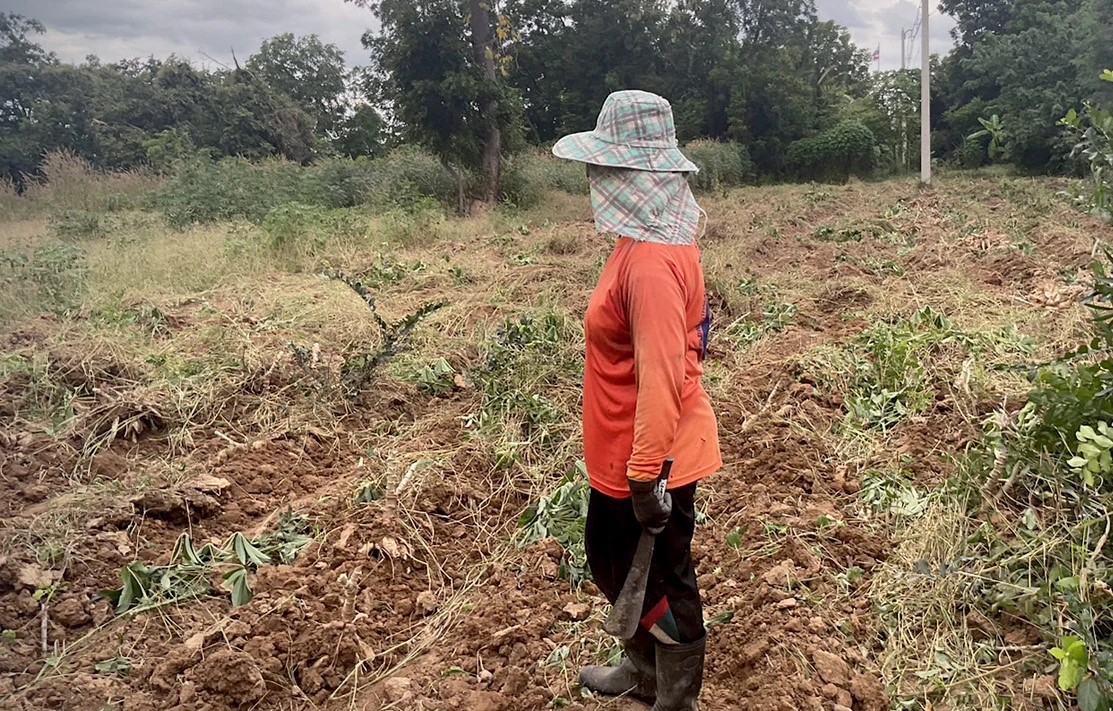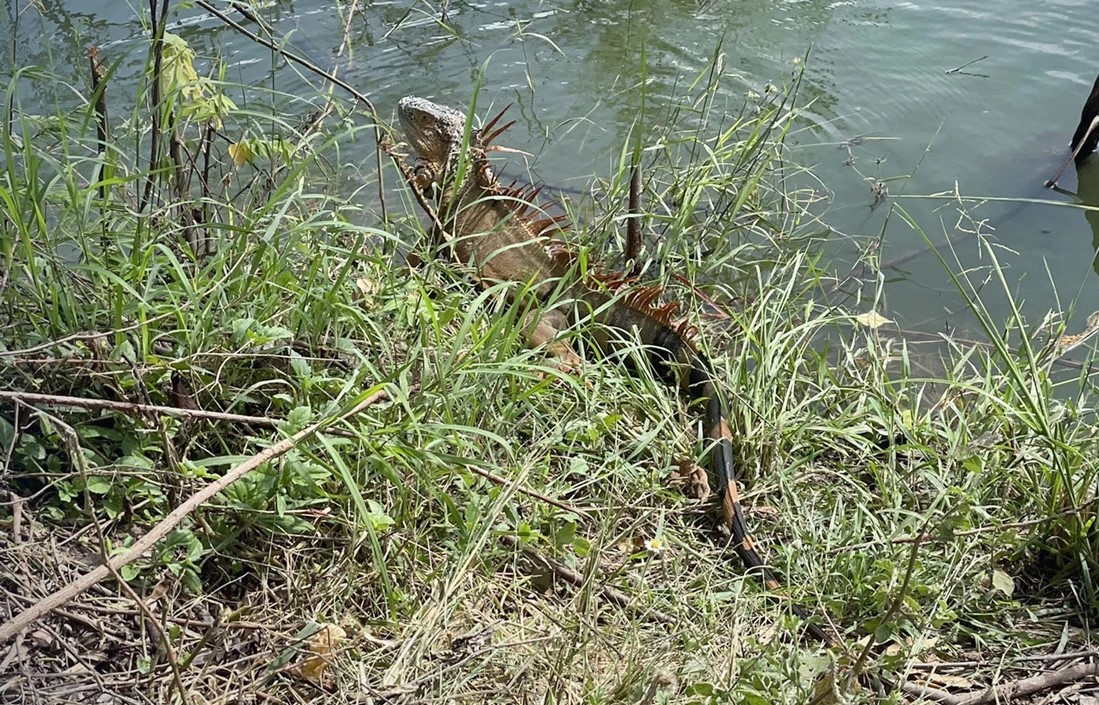(ANN/THE NATION) – Wildlife authorities in Thailand are surveying Lopburi’s Phatthana Nikhom district to assess the iguana population and address the enduring adverse effects of the increasing number of these reptiles.
The surge in iguana numbers has led to crop and plant damage, creating challenges for residents striving to cultivate and sustain their families.
To tackle this issue, officials are employing diverse vegetables as bait to attract iguanas perched on tree branches near water sources.
The objective is to conduct a comprehensive population count and experiment with various capture methods.

A local resident in the affected community mentioned that some of the iguanas are between five to six years old, and these reptiles have been present for approximately a decade, causing harm to crops cultivated by the villagers.
While this villager has not experienced aggression or harm from the iguanas personally, the decision about whether to capture them depends on the authorities.
The villagers expressed scepticism about the effectiveness of capturing them, as iguanas tend to find suitable places with shade and stay there.
In the vicinity of the village’s chicken farm, there are approximately 100 large iguanas and as many as 1,000 small ones of various colours.
Another villager highlighted the challenges of growing vegetables due to iguanas eating everything, and their persistent return after being chased away.
Reducing the iguana population is seen as a potential solution, especially during the dry season when their numbers tend to increase.
Villagers cultivating cassava have been particularly hard hit as the iguanas consume the leaves, making vegetable cultivation impossible.
Even crops protected with insecticides are eaten by iguanas without showing signs of harm, forcing the villagers to buy vegetables instead.

Some villagers are aware that iguanas can be sold and there have been reports of individuals catching them for consumption.
However, there is mixed sentiment in the district, with some expressing sympathy for iguanas and advising caution in raising them due to their voracious eating habits.
Beautiful iguanas can fetch high prices, which could explain the claims that the iguana population has decreased in certain areas, possibly due to people catching them for sale or personal consumption.
Those involved in breeding and cultivating iguanas for sale primarily export them to Vietnam, China, and Malaysia through Bangkok’s Chatuchak market.
Veterinarians caution against touching them due to the risk of infectious diseases transmitted from iguanas to humans, such as salmonellosis. However, they stress that this pathogen is not exclusive to iguanas and can be found in various reptiles.
Precautions including wearing rubber gloves and practising proper hygiene are recommended for those who may come into direct contact with iguanas or their faeces.
Children and elderly individuals have a higher risk of contracting the infection, but the severity of symptoms depends on the level of exposure to bacteria and the individual’s immune system.
It is emphasised that the illness is not necessarily severe, and some individuals may recover on their own. Regular cleaning and disinfecting are advised for areas where iguanas may enter, as is ensuring the safety of water and utensils stored in those areas.







